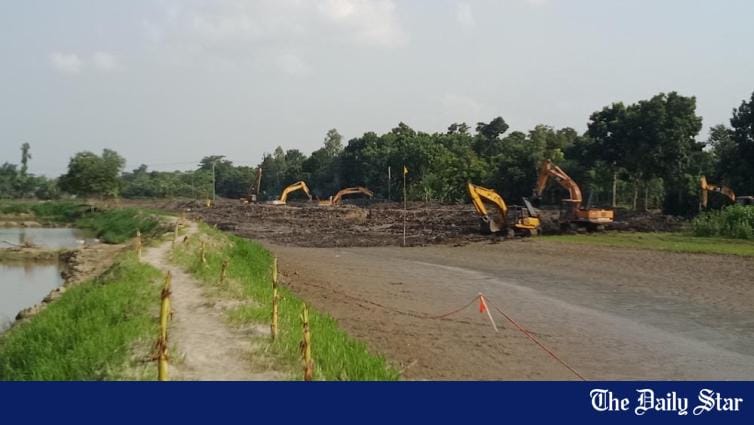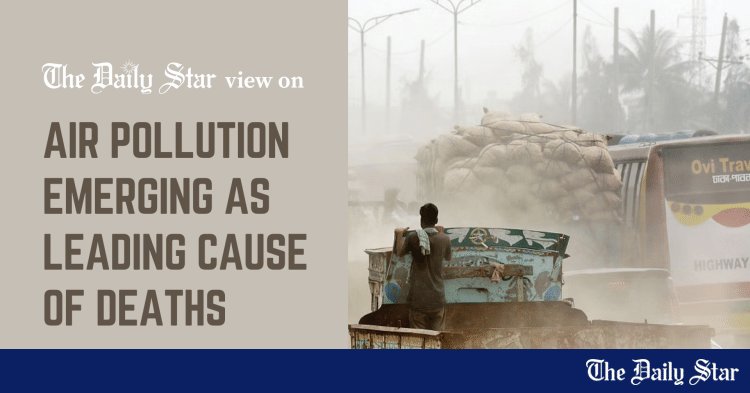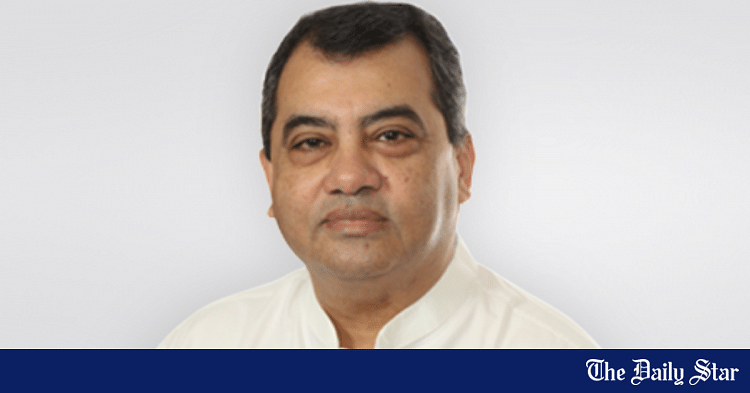Saif
Senior Member
- Joined
- Jan 24, 2024
- Messages
- 17,175
- Likes
- 8,163
- Nation

- Residence

- Axis Group

FY25 budget allocation for climate finance inadequate, say experts
Published :
Jun 13, 2024 21:42
Updated :
Jun 13, 2024 21:42

Despite formulating long-term plans like the Centenary Delta Plan to tackle climate change, Bangladesh's annual budget allocations remain insufficient for effective implementation, experts said at a seminar on Thursday.
They made the remark during a seminar titled "Independent Climate Finance Inevitable for Sustainable Development" organised by EquityBD, AOSED, CLEAN, CSRL, and COAST Foundation at the Dhaka Reporters' Unity. The event was presided over by Dr Qazi Khaliquzzaman Ahmad and moderated by Rezaul Karim Chowdhury of EquityBD, according to a press release.
Abul Hasan of Coast Foundation presented the keynote, with three major demands for climate finance: allocating at least 3.0 per cent of GDP to climate finance to reduce reliance on foreign loans and protect vulnerable populations; prioritising the National Strategy Paper on Displacement Management in the climate finance framework; and ensuring local needs-based allocations separate from traditional embankment construction funds for coastal protection.
Hasan Mehdi of CLEAN pointed out the disparity between the national five-year plan's target of achieving 10 per cent renewable energy by 2025 and the current achievement of only 3.0 per cent.
Ziaul Haque Mukta from CSRL stressed the need for regional plans to address local climate impacts, stating that national plans are inadequate for regional-specific issues.
Dr. Qazi Khaliquzzaman Ahmad noted that although the National River Protection Commission has identified river encroachers, it lacks the enforcement power to take action against them.
Rezaul Karim Chowdhury said Bangladesh could follow the success of community-involved embankment maintenance models in Bhola and Charfashion.
Published :
Jun 13, 2024 21:42
Updated :
Jun 13, 2024 21:42
Despite formulating long-term plans like the Centenary Delta Plan to tackle climate change, Bangladesh's annual budget allocations remain insufficient for effective implementation, experts said at a seminar on Thursday.
They made the remark during a seminar titled "Independent Climate Finance Inevitable for Sustainable Development" organised by EquityBD, AOSED, CLEAN, CSRL, and COAST Foundation at the Dhaka Reporters' Unity. The event was presided over by Dr Qazi Khaliquzzaman Ahmad and moderated by Rezaul Karim Chowdhury of EquityBD, according to a press release.
Abul Hasan of Coast Foundation presented the keynote, with three major demands for climate finance: allocating at least 3.0 per cent of GDP to climate finance to reduce reliance on foreign loans and protect vulnerable populations; prioritising the National Strategy Paper on Displacement Management in the climate finance framework; and ensuring local needs-based allocations separate from traditional embankment construction funds for coastal protection.
Hasan Mehdi of CLEAN pointed out the disparity between the national five-year plan's target of achieving 10 per cent renewable energy by 2025 and the current achievement of only 3.0 per cent.
Ziaul Haque Mukta from CSRL stressed the need for regional plans to address local climate impacts, stating that national plans are inadequate for regional-specific issues.
Dr. Qazi Khaliquzzaman Ahmad noted that although the National River Protection Commission has identified river encroachers, it lacks the enforcement power to take action against them.
Rezaul Karim Chowdhury said Bangladesh could follow the success of community-involved embankment maintenance models in Bhola and Charfashion.







































